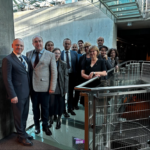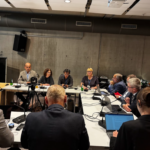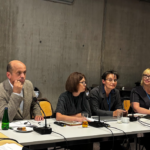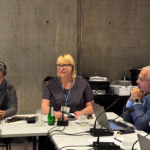Poland: Legislative Process Features as Indicators of Institutional Efficiency/Ukraine: Legislative Quality and Effectiveness: Conceptual Analysis and Assessment Criteria
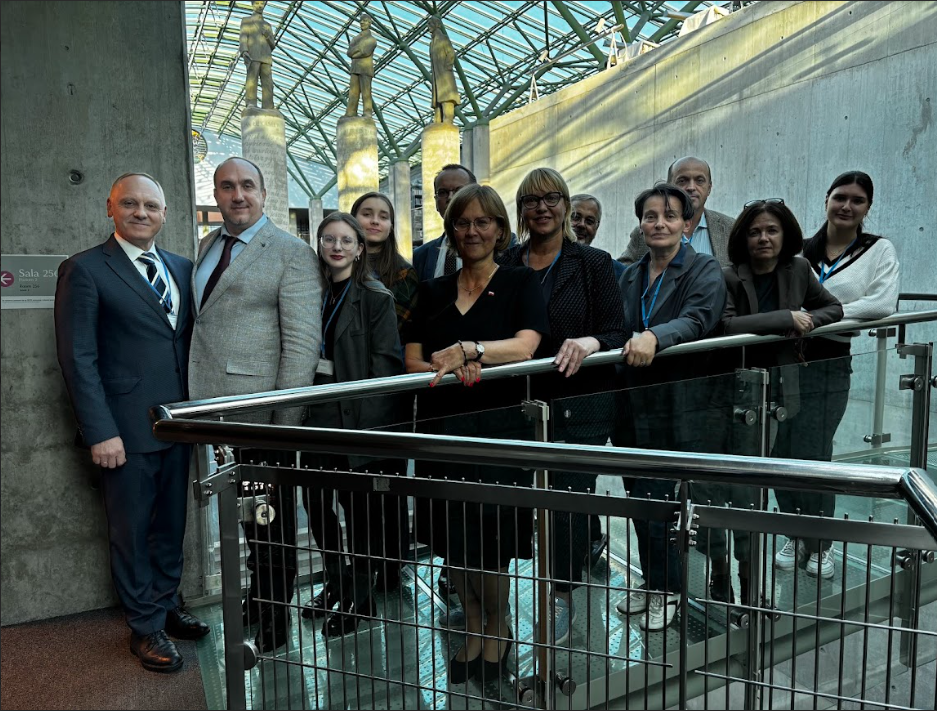
25 09 2025
On 25 September 2025, another seminar in the series “The political system at work” was held, devoted to the quality and effectiveness of legislation and the legislative process as an indicator of institutional efficiency. Presentations were delivered by Prof. Ihor Onyshchuk from the Vasyl Stefanyk Carpathian National University in Ivano-Frankivsk and Prof. Agnieszka Dudzińska from the University of Warsaw.
Prof. Ihor Onyshchuk’s paper, entitled ‘The Quality of Legislation: Conceptual Analysis and Evaluation Criteria,’ covered four thematic blocks: the theoretical foundations of the quality and effectiveness of legislation, the legislative process as a factor in the quality of legal regulation, regulatory impact assessment (Regulatory Impact Assessment, RIA), and foreign experience and theoretical approaches to assessing the effectiveness of law. The speaker pointed out that the quality of legislation is a multidimensional category, combining clarity of law, consistency, systematicity, logic, and democratic legitimacy, in accordance with the principle of the rule of law. Important features such as stability and predictability, as well as respect for human rights, cannot be overlooked. Legislation must address current social issues, but the effectiveness of law depends not only on the quality of the normative act itself, but also on factors both internal (content, form, structure of the legal norm) and external (social, economic, political and cultural context).
Prof. Ihor Onyshchuk’s presentation also touched upon the concept of evidence-based legislation: legislation should be based on evidence, empirical data, and public consultation. In his presentation, the speaker also discussed the Regulatory Impact Assessment (RIA) tool, which serves to improve the quality of law by analysing the social, economic and environmental impacts of new legislation. RIA is crucial and systematically used in the EU, while in Ukraine it is only partially and formally applied at this stage. The speaker also touched upon the challenges facing Ukrainian legislation, such as overproduction and so-called legal inflation, the lack of a uniform methodology for monitoring quality, and the formal approach to public consultations.
During the discussion following the presentation, the participants raised a number of comparative issues. They pointed, among other things, to the differences between legal theory and practice, the problem of centralisation of power and competence disputes, which may resemble Poland’s experience, as well as the similarity between Ukrainian and Polish experiences in terms of legal inflation and the often formal nature of public consultations. Much attention was devoted in the discussion to the use of artificial intelligence tools to monitor the quality of law, emphasising both their potential and the limitations associated with AI’s inability to capture the ‘spirit of the law’. The role of the constitutional court as an institution defining standards of legislative quality, the issue of public participation in the law-making process, and the need to create universal indicators of legal quality that would allow for assessing its effectiveness not only at the formal level, but also at the social level, were discussed.
The second paper, entitled ‘Features of the legislative process as indicators of institutional efficiency,’ was presented by Prof. Agnieszka Dudzińska. The speaker presented the results of her own research on the legislative process in Poland in the years 1997–2023. Over 61,000 roll-call votes in the Sejm were analysed, and Rice’s compliance index was used to assess the level of political consensus. The study examined, among other things, the impact of the type of government (majority/minority, coalition/single-party), cohabitation between the government and the president, political relations between the Sejm and the Senate, the strength of the opposition, and the nature of voting. The speaker noted that institutional efficiency can be assessed by the system’s ability to reach consensus.
An analysis of data from eight terms of office has made it possible to distinguish various political configurations in the legislative process: periods of cohabitation between the government and the president (approx. 30% of votes), minority governments (also nearly 30%) and majority governments – single-party (approx. 30%) and coalition (approx. 40%), as well as situations of political disagreement between the two chambers of parliament (13% of votes) and the existence of a strong opposition (approx. 60%). Another important differentiating factor was the formal subject of the vote. This made it possible not only to compare the average values for individual cases, but also to carry out a multivariate analysis, which allowed the isolated impact of each factor to be assessed.
The results presented by the speaker showed that single-party majority governments lead to the greatest polarisation, while coalition and minority governments favour greater consensus. Another important factor is the formal subject of the vote: procedural votes, among others, cause the greatest divisions, while the ratification of international agreements usually unites MPs across party lines. However, no impact of cohabitation between the government and the president on inter-party polarisation in voting was found.
The discussion following the presentation raised questions and comments concerning both the research methodology and the broader political context. Attention was drawn to the problem of weak political culture and the specific nature of the Polish model of cohabitation, which may hinder cooperation through mutual blocking of institutions. The choice of the Rice index as an indicator and the possibility of including the impact of the elections themselves in the analyses were also discussed. It was emphasised that a strong opposition does not lead to compromise but rather deepens polarisation, and that institutions formally intended to act as brakes may in practice reinforce conflicts. Questions were raised about the role of the Senate, the importance of small parliamentary circles, and how political disputes affect the quality of law. Attention was drawn to the differences between legislative practices in Poland and Ukraine, as well as to the special nature of voting on EU matters, where there is broader consensus.
The seminar showed that in both Poland and Ukraine, the quality of the legislative process depends not only on the shape of the law, but also on the institutional arrangement and political culture. The discussion highlighted the need to create tools that will allow for better measurement not only of the formal correctness of the law, but also of its actual social effectiveness.

